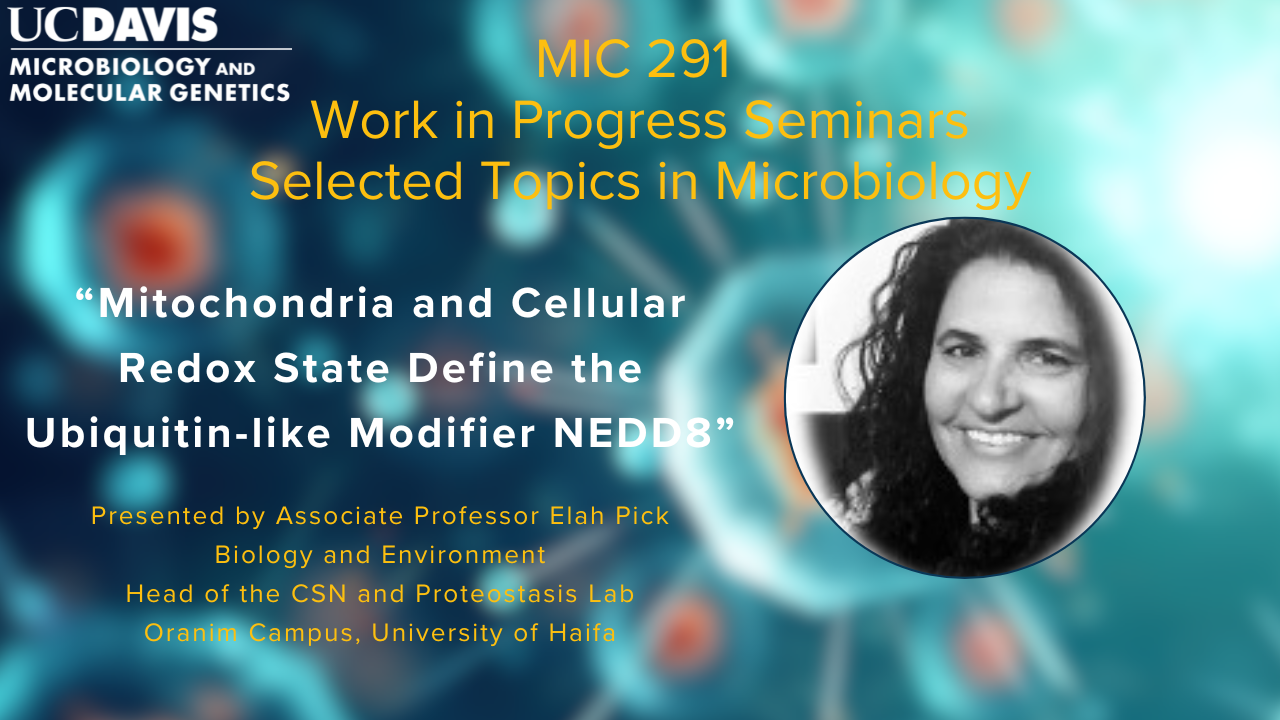
Event Date
Guest Speaker: Associate Professor Elah Pick, Ph.D, Biology and Environment, Head of the CSN and Proteostasis Lab, Oranim Campus, University of Haifa
Dr. Pick presents: "Mitochondria and Cellular Redox State Define the Ubiquitin-like Modifier NEDD8"
About the speaker: Accordingly, as a postdoctoral fellow, Elah studied the ubiquitin pathway and the 26S proteasome megacomplex at the laboratory of Prof. Michael Glickman, where she has not only strength her biochemical skills, but also introduced with evolutionary and phylogenetic aspects, including the paralogy/orthology between macromulecular protein complexes such as the 26S-proteasome lid and the COP9 signalosome, and between small polypeptides such as ubiquitin and NEDD8. This lead her to join the laboratory of Dr. Ning Wei at Yale, who studies the COP9 signalosome and counterparts in mammalian systems, and collaborating with the adjacent laboratory of Prof. Xing Wang Deng who studied similar aspects in plants. To integrate the know-how, Elah Pick returned back to Israel and established her own lab at the department for Biology & Environment of the University of Haifa - Oranim, where she studies at various levels the link between evolution and environmental stress and the proteolytic systems.
About the lab: Dr. Pick’s lab studies how post-translational modifications respond to metabolic and environmental stimuli, particularly oxidative stress. Based at the Klein Center, they leverage budding yeast as a model to gain biochemical insights and address physiological questions. Their work extends to mammalian tissue cultures and the parasite, Giardia lamblia, which copes with oxidative stress during waterborne diarrheal disease. Current research focuses on anaerobic Giardia's vulnerability to reactive oxygen species, countered by the immune response. Integrating protein biochemistry, chemistry, redox biology, genetics, bioinformatics, and physiology, our interdisciplinary approach tackles key scientific challenges with practical implications.
Contact Scott Dawson (scdawson@ucdavis.edu) or Amanda Huang (amnhuang@ucdavis.edu) for any questions.
